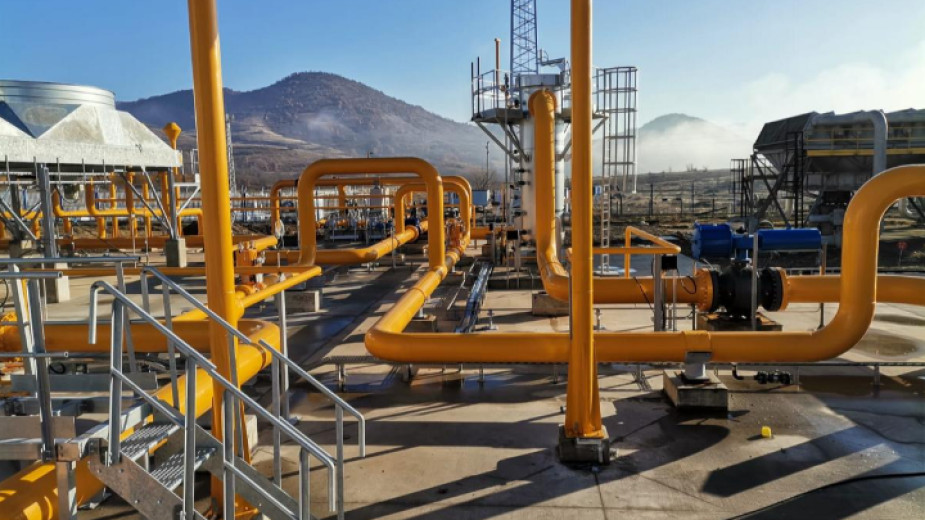REFORM OF EU GAS MARKET: NEW MEASURES TO DECARBONISE AND SECURE SUPPLY
-
Legislation aims to tackle climate change, ensure energy security
-
Scheme will promote biomethane, hydrogen, in shift from fossil gas
-
Consumers to be able to choose renewable and low-carbons gases
MEPs backed two legislative proposals to facilitate the uptake of renewable and low-carbon gases, including hydrogen, into the EU gas market.
On Thursday, the Industry, Research and Energy Committee adopted its position on two acts, a regulation and a directive, to facilitate access to the grid for renewable and low-carbon gases, such as biomethane and hydrogen.
The legislation would also create a certification system for low-carbon gases and ensure that consumers can switch suppliers more easily to choose renewable and low-carbon gases over fossil fuels in their contracts.
Hydrogen backbone, mainstreaming biomethane
In their amendments to the directive, MEPs say that hydrogen corridors, identified in the REPowerEU plan, should be supported by adequate infrastructure and investments. The aim is to ensure that enough cross-border capacity is available to establish an integrated European hydrogen market – the so-called “hydrogen backbone”, and enable hydrogen to move freely across borders.
EU natural gas to replace 20% of Russian supply
In their amendments to the regulation, in line with the REpowerEU targets, MEPs say that by the end of 2030, member states should ensure collectively at least 35 billion cubic meters of sustainable biomethane. This would be produced and injected into the natural gas system, annually, with the aim of replacing 20% of Russian natural gas imports with a sustainable, cheaper and locally produced alternative.
MEPs also propose to reform the European Network of Transmission System Operators for Gas (ENTSOG) to also cover Hydrogen Network Operators. The new ENTSOG&H would therefore also be responsible for the EU ten-year network development plan for gas and hydrogen networks.
MEPs’ amendments also include the mechanism for member states to coordinate gas purchases, initially set up under an emergency procedure.
Fossil gas phase out
MEPs want EU countries to phase out fossil gas as soon as possible, taking into account the availability of alternatives. Member states may decide on an earlier end-date for the duration of long-term contracts for unabated fossil gas before the end of the year 2049.
Quotes
Jens Geier (S&D, DE), rapporteur on the directive, said: “This vote is the next step towards a climate-neutral Europe. The European Parliament allows - in contrast to the Commission’s proposal - more certainty for investments in hydrogen infrastructure based on the existing natural gas grid, instead of imposing restrictions on investment. We call for gas, hydrogen and electricity infrastructure to be planned jointly to better coordinate energy systems in the future. For end consumers, hydrogen is to be prioritised in sectors that are hard to decarbonise in order to support the European industry’s transformation and save greenhouse gas emissions. Facing the current energy crisis, the rights of vulnerable consumers and households in energy poverty will be strengthened, for example by banning disconnections during winter.”
Jerzy Buzek (EPP, PL), rapporteur on the regulation, said: “The age of hydrogen is coming. To make it happen in the EU, we need a stable and well-balanced regulatory framework, financial support as well as investments in new infrastructure. With this legislation, we are preparing it. The fight against climate change and moving away swiftly from all Russian energy sources as a response to the criminal invasion of Ukraine, both require us to accelerate our clean and just energy transition and adapt the market. We want to boost the development of biomethane and create incentives for producers and consumers to switch to green and low-carbon hydrogen. Special support should be given to upscaling renewable and low-carbon gases in our coal regions. We are also strengthening the joint gas purchasing scheme and making all gas contracts in the EU more transparent”.
Next steps
The draft directive was adopted with 62 votes to 2, with 7 abstentions, the draft regulation with 54 votes to 17, with 1 abstention. MEPs also gave their green light to enter into interinstitutional negotiations, pending formal approval during the 13-16 March plenary session, with 65 votes to 3, with 3 abstentions for the draft directive, and 54 votes to 14, with 5 abstentions, for the draft regulation.
Background
This legislative package aims to foster greater regional cooperation on gas storage, facilitate the joint procurement of strategic stocks, and encourages member states to take measures to address cyber-attacks. Both acts will become a core component of new EU rules for hydrogen networks, comparable to those that already exist for natural gas and electricity.
The updated directive will include provisions on consumer rights, transmission and distribution system operators, third-party access and integrated network planning, and independent regulatory authorities.
The updated regulation will push existing natural gas infrastructure to integrate a higher share of hydrogen and renewable gases, by means of high tariff discounts. It includes provisions to facilitate blending hydrogen with natural gas and renewable gases, and greater EU cooperation on gas quality and storage.






